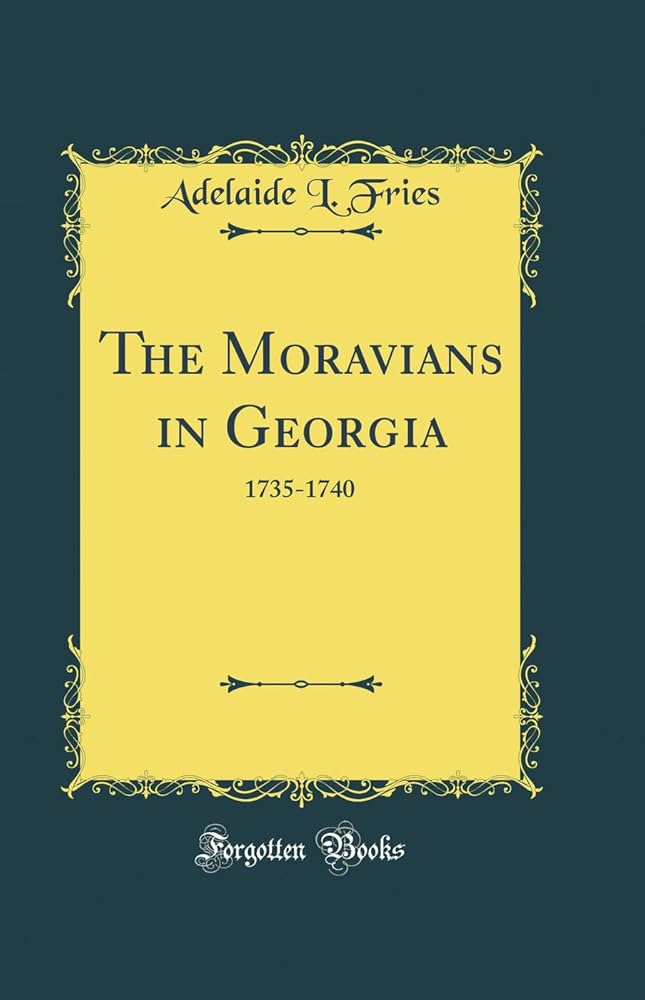Chapter II — Negotiations with the Trustees of Georgia
byChapter II — Negotiations with the Trustees of Georgia unfolds as a pivotal moment where idealism met the realities of colonial administration. Count Zinzendorf, known for his deep spiritual convictions and political insight, pursued the creation of a haven for the Moravians and Schwenkfelders amidst the religious turbulence of early 18th-century Europe. The initiative was not simply about relocation; it represented a pursuit of freedom to worship, build, and serve without interference from state churches or suspicion from dominant political powers. Zinzendorf’s proposal came with carefully worded conditions, aiming to assure the Georgia Trustees that these settlers would remain law-abiding subjects while maintaining their religious principles. His diplomatic approach, coupled with his noble title, allowed the negotiation to progress despite lingering doubts among British officials about foreign religious groups.
In the midst of these exchanges, the plight of the Schwenkfelders added urgency. Forced out of Saxony by decree, they looked to Zinzendorf not only for leadership but for survival. He worked to shield them from unjust accusations by appealing directly to legal channels, requesting that a public investigation clear his name and intentions. This move reflected a broader pattern of the Moravian ethos—resolving conflict through orderly means rather than confrontation. Ultimately, while the Schwenkfelders chose to follow a separate path toward Pennsylvania, their story paralleled the Moravians’—each group searching for freedom yet guided by different counsel. The Moravians stayed the course toward Georgia, focused on building a community that could model both spiritual discipline and civic responsibility.
The outcome of these negotiations secured a small but promising tract of land for the Moravians in Georgia. Though it lacked immediate advantages, it symbolized a new beginning for those driven not by conquest but by calling. This land was to serve not only as a home but also as a mission field, especially to the Native American tribes nearby. The trustees, concerned with maintaining order and populating the colony with industrious settlers, found the Moravians’ peaceful character appealing. They agreed to logistical support, including provisions and shipping arrangements, with the understanding that the settlers would abide by the laws of England and avoid political entanglements. Such agreements reflected the delicate balance Zinzendorf managed—preserving autonomy while aligning with imperial expectations.
During this period, political suspicion toward nonconformist groups ran high, especially in colonial contexts where loyalty to the Crown was paramount. Zinzendorf had to walk a careful line. His correspondence was anonymous or filtered through intermediaries, a strategy used to reduce direct backlash and prevent any accusations of insurrectionist tendencies. Even with these precautions, the Moravians’ communal lifestyle and missionary ambitions were scrutinized by both secular and ecclesiastical authorities. Their commitment to pacifism particularly stood out in a world increasingly shaped by militarism and colonial conquest. Still, they managed to convince the trustees of their loyalty, in part by emphasizing their willingness to labor, educate, and minister without causing disruption.
Although the Moravians’ original goal was shared settlement with the Schwenkfelders, diverging decisions ultimately shaped the distinct destinies of both groups. The Schwenkfelders’ move to Pennsylvania was encouraged by other Protestant communities already established there, such as the Mennonites and Quakers. Their decision created a natural parting, yet the Moravians proceeded with confidence, grounded in their theological clarity and strong community bonds. With preparations underway, they envisioned a settlement marked by order, devotion, and a distinct identity—a place where faith guided every aspect of life. While challenges lay ahead, the successful conclusion of this phase marked a hopeful threshold into what they believed would be a meaningful presence in the New World.
Looking at this chapter today, it offers more than a historical account—it mirrors modern challenges in religious freedom, migration, and cross-cultural negotiation. The Moravians’ story reminds us that migration driven by conscience often requires navigating power structures with both humility and conviction. The Georgia Trustees, like many modern gatekeepers, had to assess unfamiliar communities through the lens of political utility and social stability. That the Moravians gained a foothold speaks to their clarity of purpose and diplomatic skill. Their example remains relevant not just for religious history, but for anyone studying how ideals are sustained when transplanted across oceans and rooted in new soil.

